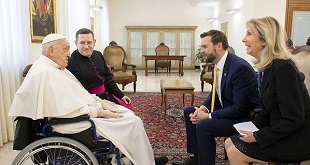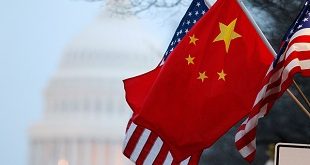The best solution for that country is to allow Ouattara and Gbagbo to contest in the real court of effective state formation – the military
President Laurent Gbagbo of Ivory Coast has refused to hand over power to Alassane Ouattara. Gbagbo is in effective control of the Ivorian state; Ouattara has international recognition. Previously, Gbagbo would have carried the day. But in the current circumstances, I think he is fighting a lost battle. There is little possibility that he can retain power in the face of such broad based international resistance to his rule.
 Many people may be inclined to believe that if Gbagbo hands over power to Ouattara, democracy will triumph. However, this is a very simplistic view of the problems of Ivory Coast. There is a fundamental problem with the way democracy has been introduced in that country and Africa generally. Even worse is the belief that every political problem in a country can only be solved through competitive elections.
Many people may be inclined to believe that if Gbagbo hands over power to Ouattara, democracy will triumph. However, this is a very simplistic view of the problems of Ivory Coast. There is a fundamental problem with the way democracy has been introduced in that country and Africa generally. Even worse is the belief that every political problem in a country can only be solved through competitive elections.
First of all, this is not the first time an Ivorian leader is refusing to hand over power to another. Today it is Gbabgo refusing to hand over power to Ouattara; in December 1993, Ouattara as prime minister tried to refuse to hand over to Henri Konan Bedie when the first Ivorian president, Felix Houphouët-Boigny, died. In fact, Ouattara had been acting president for more than two years when Boigny was bedridden.
According to the then Ivorian constitution, upon the death of the president, the speaker of parliament would take over. Ouattara was supposed to organise the transition. As Boigny lay dying, Ouattara plotted to amend the constitution so that he takes over instead. However, the speaker of parliament was Bedie, rumoured to be Boigny’s illegitimate son. So Ouattara could not use parliament to change the constitution. Then Boigny died and Ouattara refused to hand over power. The army went on the side of Bedie and the speaker made an impromptu appearance on television, literary forcing the news reader off his chair to declare himself president.
Once Bedie became president, his first task was to block Ouattara from becoming president. He sent him to the IMF to keep him out of local politics where Ouattara became deputy Managing Director. But Ouattara was smart and used the post to build an international network of friends in powerful places that are helping him now. In 1995 parliament passed a law barring anyone of whose both parents were not born in Ivory Coast from running for president. It was aimed at Ouattara one of whose parents, it was claimed, was from Burkina Faso. That year, Ouattara and Gbagbo allied against Bedie to boycott the election which the incumbent won by 96%.
In 1999 Bedie was overthrown in a coup which Ouattara called a revolution. Many Ivorians claim that Ouattara and Gbagbo were behind the coup. However, the new military ruler Gen. Robert Guei wanted to retain the job; so he decided to run in the December 2000 elections. But first, he disqualified Bedie. He then amended the constitution to block Ouattara from running on grounds of his parentage. This left Gbagbo as the only serious contender. When the results came in, Guei had lost, but he nonetheless announced himself winner. A popular revolt by Gbagbo supporters in the capital Abidjan forced Guei out of power.
Once Gbagbo got into office, he sparked off a civil war by trying to strip many of his people of their citizenship. The rebellion was supported by Ouattara and the country was literally split into two. When a peace agreement was signed, Gbagbo, remained president but it was agreed that elections be held within a year to decide the next government. The election was postponed three times before it was finally held in 2010.
The final peace deal was signed in 2007. Under the peace agreement, Ivory Coast was parceled out like a piece of cake to be shared by Gbagbo, Bedie and Ouattara in what in Africa is typically called a “government of national unity” but which in effect has been a government of national looting. Ministries were shared thus: Gbagbo got defence, mining and finance; Bedie was given foreign affairs and economic infrastructure i.e. airports and the lucrative port; while Ouattara got telecommunications and construction.
Each of the “Big Three” was making a fortune from this arrangement. Each one controls a strong ethnic base of support. But elections are good for the masses since that is the only time they get a chance to share “the national cake” when politicians employ outright voter bribery – with bags of rice, sugar and alcohol. It is a cynical manipulation of poverty and an abuse of democracy that Gbagbo, Ouattara and Bedie remain the main political actors in a country they have inflicted untold damage unto.
As part of the power sharing arrangement, each of the Big Three had to nominate four people to the Electoral Commission, making a total of 12 members. As the country moved towards the 2010 elections, Ouattara allied with Bedie against Gbagbo. Because of this alliance Gbagbo had four commissioners against eight. It had been agreed that among the twelve, elections would only be announced after a consensus. Instead the eight out-voted Gbagbo’s four. The president’s side rejected the results.
The constitution said the results must be certified by the Constitutional Council, which Gbagbo had stuffed with his supporters too. There was massive rigging in the north where Ouattara has a base. This was possible since government had little control there as the region is controlled by rebels allied to Ouattara. Under 2007 Ouagadougou agreement, the rebels were supposed to be disarmed before the elections. But Ouattara and the UN revoked this part of the agreement saying elections can go ahead even before disarmament.
It is in this context that the elections took place. Gbagbo controls the “national” army, Ouattara the rebels. Gbagbo has effective control over the south, Ouattara the north. Gbagbo has the Constitutional Council in his palm, Ouattara has the Electoral Commission. These are not checks and balances; such divided power, an arrangement beloved by the UN, human rights groups and prodemocracy activists is always a recipe for disaster.
For elections to be meaningful, you need well organised groups contesting for power. The challenge Africa faces is not just to hold elections but rather to create conditions under which elections can deliver to the ordinary person. In Ivory Coast, elections tend to enhance the power of thieving elites who mobilise disruptive forces to secure their objective. The result is to simulate and stimulate chaos.
As I have always argued, the first precondition of liberty is order; without order you have anarchy; and with anarchy you cannot have democracy. American historian-philosopher William Durant once said that in history, it is the actors that change, not the actions. In Ivory Coast, both the actors and the actions don’t change.
All the contenders in politics in Ivory Coast today are the same politicians who have messed up that country; the same politicians who have dominated the political scene for three decades; the same politicians who have looted its wealth with reckless abandon; the same politicians who have stoked the fires of ethnic hatred; the same politicians who have stolen elections; the same politicians who have stifled the voice of the ordinary person from the governance of the country; the same politicians who have been shifting alliances as and when occasion suited them.
 The Independent Uganda: You get the Truth we Pay the Price
The Independent Uganda: You get the Truth we Pay the Price



